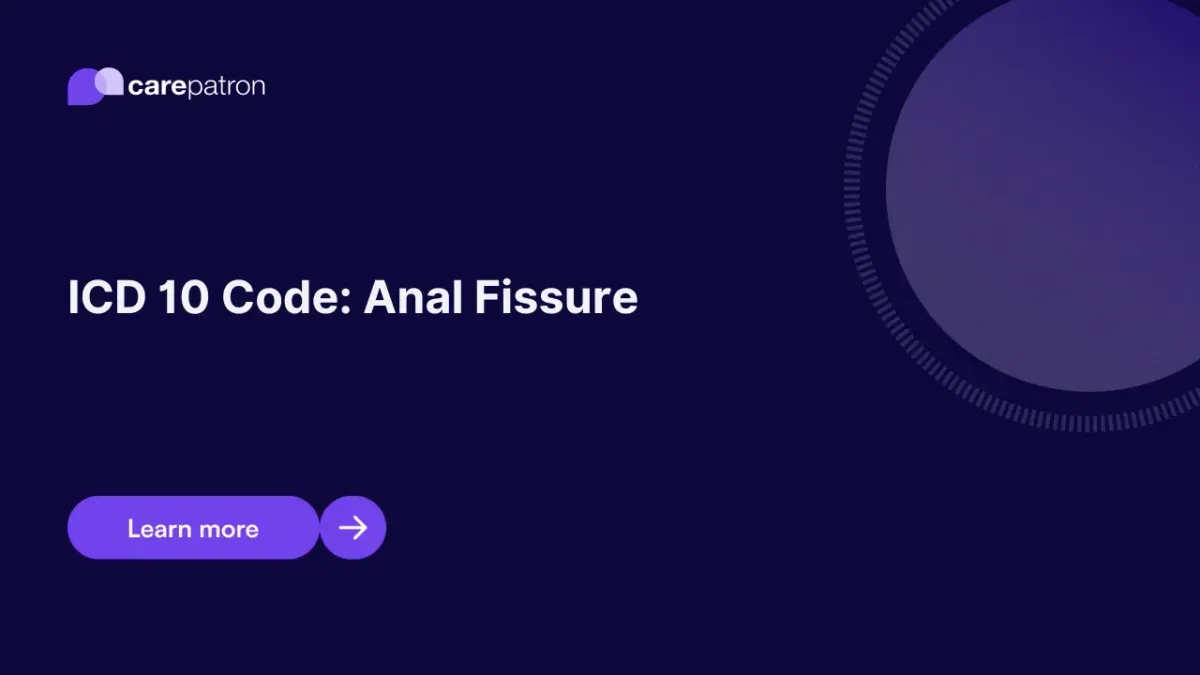
Anal Fissure ICD-10-CM Codes | 2023
Explore the most current ICD-10 codes used for diagnosing anal fissure conditions, ensuring accurate billing and treatment plans.
Use Code
Commonly asked questions
An anal fissure ICD code is used when a patient is diagnosed with a tear in the anal canal, which can be acute or chronic.
Yes, anal fissure diagnoses are billable, and specific ICD-10 codes should be used for accurate billing.
A diagnosis code for an anal fissure identifies the type and severity of the fissure, which is essential for treatment and billing purposes.
EHR and practice management software
Get started for free
*No credit card required
Free
$0/usd
Unlimited clients
Telehealth
1GB of storage
Client portal text
Automated billing and online payments
